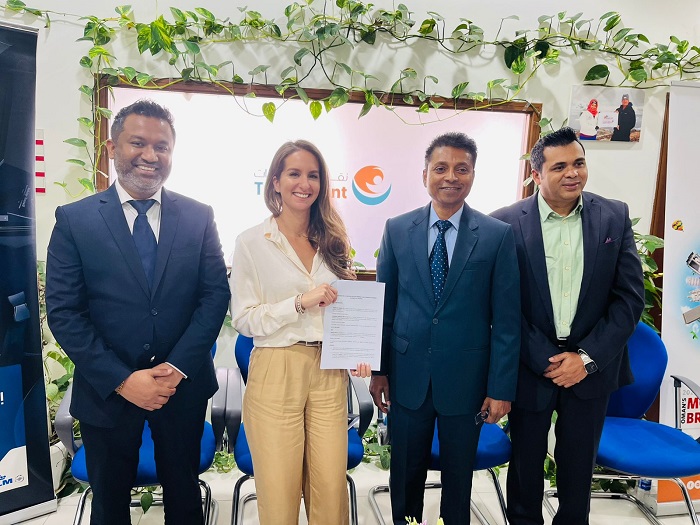
Muscat: An Omani travel company has joined hands with global airlines Air France, KLM to promote the transition from conventional fossil fuels to sustainable aviation fuels (SAF) which will reduce carbon emissions by 75 percent leading to a cleaner environment.
Travel Point joined the programme as a show of support to the airlines as also to add its voice to those responsible for decisions to protect the natural world, said Sunil D’Souza, the company’s CEO.
“Sustainability is simply everything that we need for our survival and well-being, either directly or indirectly,” he said. “Environmental sustainability involves decisions and actions that are in the interests of protecting the natural world, with particular emphasis on preserving the capability of the environment to support human life. Therefore, we took the first step towards sustainability along with Air France KLM.”
Laila El Mansouri, country sales manager, UAE and Oman, Air France KLM said, “Our corporate SAF programme was launched in 2012 and now includes over seventy partners worldwide. These businesses and institutions help Air France KLM finance the purchase of SAF, thereby reducing the CO2 footprint of their business travel by air.”
“Businesses can potentially cause damage to some areas of the environment,” Al Mansouri added. “Some of the common environmental concerns include damaging rainforests and woodlands through logging and agricultural clearing; polluting and over-fishing of oceans, rivers and lakes; polluting the atmosphere through the burning of fossil fuels and damaging prime agricultural and cultivated lands through the use of unsustainable farming practices. The same applies to the aviation sectors. Therefore, I personally believe that we cannot overlook these areas and we must take action sooner, rather than regret later.”
In 2011, KLM conducted the world’s first commercial flight on blended biofuel. In February 2021 KLM operated a commercial flight with an admixture of sustainable synthetic fuel. For SAF, KLM focuses on all technologies, that is, used cooking oil, forestry residues and sustainable synthetic fuel.
The CO2 emissions of SAF that KLM currently purchases are at least 75 percent lower than those of fossil kerosene. That is why, in the short term, SAF is the most important means of drastically reducing CO2 emissions, thus contributing to a more sustainable technology. The costs of the sustainable fuel variant are at least four times higher and production is lagging. By increasing demand, KLM hopes to further develop the market for SAF so that supply is scaled up and sustainable fuel ultimately becomes cheaper.